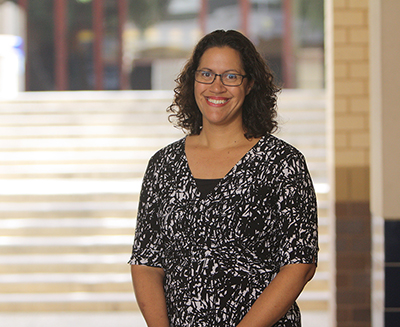Documenting Teaching Effectiveness
Angela C. Jenks, Associate Professor of Teaching of Anthropology

The Academic Personnel Manual states that “clearly demonstrated evidence of high quality in teaching is an essential criterion for appointment, advancement, or promotion" for faculty in the Professor series. Similar evidence of “excellent teaching" is an essential criterion for faculty in the Professor of Teaching series.
The following list includes potential forms of evidence to consider submitting with your review file or discussing in your teaching statement. This list is not exclusive or exhaustive; talk with your Department Chair or other faculty mentors about other forms of evidence that apply to your discipline.
- Peer review of your teaching. Ask a colleague in your department or the School to conduct a peer review of your teaching; Department Chairs might facilitate this process. Peer review typically includes a conversation about your course design, pedagogical approach, goals, and/or challenges; a classroom observation; and a post-observation meeting. The peer reviewer writes a final report that can be included in your review file. UCI’s Office of Academic Personnel offers guidance on peer evaluation of teaching.
- Self assessment of your teaching. Self assessment often takes the form of a Reflective Teaching Statement (see guidance on Reflective Teaching Statements from the UCI Office of Academic Personnel).
- Documentation of your impact as an effective mentor for students. Keep track of your mentees’ academic and professional trajectories. Document their achievements after you write letters of recommendation in support of graduate school admission, employment, or other professional opportunities.
- Presentations on teaching techniques or experiences. These may include presentations on teaching at professional organizations or symposia and public demonstrations of teaching techniques, as well as participation on teaching-related panels and roundtables both in and outside of UCI.
- Documentation of your impact on others’ teaching. Impact may come from informal activities like sharing syllabi, instructional materials, assignment instructions, or other teaching tools. Consider asking colleagues both in and outside of UCI to write notes about how they have used or adapted your teaching tools or approaches. If you adapt others’ teaching materials, send them a note for their personnel files!
- A teaching portfolio that showcases your teaching practices. Materials in a portfolio might include sample course syllabi, examples of assignments or teaching tools, materials developed for remote instruction, or samples of student work and assessment rubrics. Consider annotating these materials (or discussing them in a Reflective Teaching Statement) to highlight intentional and effective teaching practices.
- Testimony from former students on the impact and effectiveness of your teaching and mentorship. These may include unsolicited messages or “thank a teacher" notes as well as more formal letters from former students, mentees, or teaching assistants. Note that, because of potential conflicts of interest, CAP generally does not consider solicited letters from students to be useful in evaluating teaching effectiveness.
- Documentation of efforts to develop your teaching. These efforts may include participation in teaching-related workshops and other professional development opportunities both in and outside UCI, collaboration with instructional designers, or the receipt of teaching grants. Reflective Teaching Statements can be used to describe how you have implemented approaches or techniques you learned in these activities.
- Teaching and mentorship awards. Document both nomination for and receipt of teaching awards and other honors.



